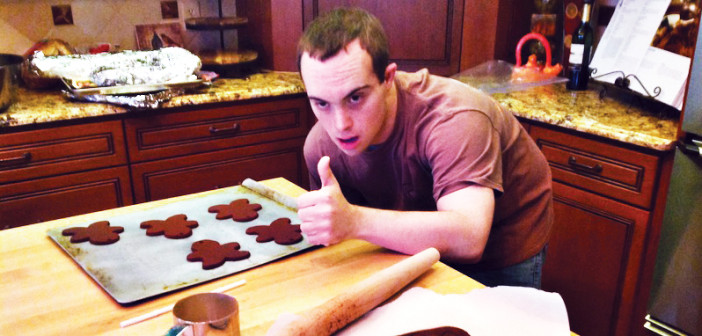By Sarah Colson
Searching for jobs, applying for colleges, preparing for the next big step—these are common activities that fill the lives of many recent high school graduates. When Deborah Grant and Cecile Huddleston’s two sons graduated from high school, things were a bit different.
Grant’s son, Marcus, and Huddleston’s son, Thomas, are both intellectually disabled. The two friends recently graduated from Science Hill High School.
After looking around at some potential opportunities for post-grad plans, Grant and Huddleston realized not many options existed to ensure their sons’ continued growth in areas including education, development and integration into the broader community.
“If we aren’t using it, we lose those skills,” Huddleston said. “So practice and reinforcement are very important. “
As well as educational and developmental regression common when intellectually disabled students graduate, the degree of social interaction can fade as well.
“I thought post high school would be like our summers,” Huddleston said. “Laid back, recreation, reading and learning activities, arts; we fill up the summer with fun things of participation. But when you graduate, as with any typically developed graduate, the community you had in school dissolves.”
Marcus spends much of his time volunteering and while many special education students find success in vocational or volunteer opportunities, many parents may face frustrations when their child no longer has a consistent learning community. Grant and Huddleston decided to do something about that.
In June, Brother’s Keeper will open its doors for intellectually disabled high school graduates.
Grant, the site director, and Huddleston, the executive director, hope to provide a low-tuition, high-energy space where participants can continue the education they started in the public school system.
“When it was time for them to graduate, and really evaluate what was out there for them, the options weren’t quite what we had hoped they would be,” Huddleston said.
“We thought if this needs to happen, it needs to be started by people like us.”
After deciding that Johnson City could benefit from a program that allowed intellectually disabled adults to come together and participate in the community, the two moms began to visit programs similar to the one they wanted to create.
Grant went as far as Washington D.C. where she came across the L’Arche community. There, Grant said she experienced a community unlike any she had before and described the mealtime prayer as “one of the most powerful prayers I had ever heard.”
Officially approved as a charity by the IRS just last week, Brother’s Keeper will feature programming similar to the community at L’Arche, the women said.
Grant and Huddleston said they also hope the environment will encourage individualized training in areas of each student’s interest. Students will also continue to study subjects like math, social studies, local news and writing.
“What we’re seeing and hearing is that there is a new wave of programing out there from what used to be available 40 years ago,” Huddleston said. “Now we’re looking at how we can meet all the needs of these individuals to help them be the best they can be. They have desires to socialize and be successful and achieve. We want them to learn more and to wake up each day and be excited for what they’re doing that day and feel like they’ve contributed by the end of the day, not just filled in time.”
With the sense of achievement and the continuation of education, Huddleston and Grant said they look forward to the relationships the staff and volunteers will build with the participants. Relationships between students and their peer tutors was an important aspect of the boys’ high school education. It also impacted the tutors, and Huddleston thinks similar relationships would develop with Brothers Keeper.
“The peer tutors our boys have had, their lives have changed,” Huddleston said. “It’s given people a passion to volunteer in some way. If more people were exposed to that on a regular basis as part of our community, it would be a positive experience.”
Currently, Grant and Huddleston are busy fund-raising. They have raised almost half of their budget for the first year and most of those funds will go to the educational and recreational professionals they plan to hire. While the program will require tuition, the duo said tuition costs only account for 17 percent of the budget.
“It will be financially possible for those who want this kind of track for their student,” Huddleston said. “It is very comparable and on the low end for what you would consider any sort of specialized training for a twenty-something. It’s a choice and we want to provide this choice for the Johnson City community.”
Grant and Huddleston hope this plan of further education will provide opportunities that go beyond the classroom.
“When you’re 21 or 22, you’re not ready to just sit in front of a TV all day,” Grant said. “We want a community very much like a college campus where people are coming and going, some are working, some are learning, some are moving from multiple things during the day. If everyone’s able to do their best at whatever is the best for them, then it really is a self-sufficient enterprise that provides all of those opportunities.”
For more information visit brotherskeepertn.org







